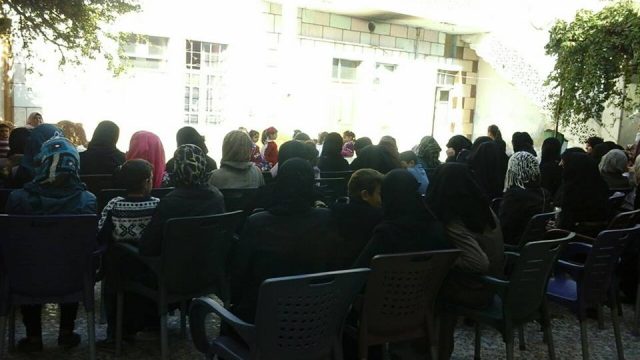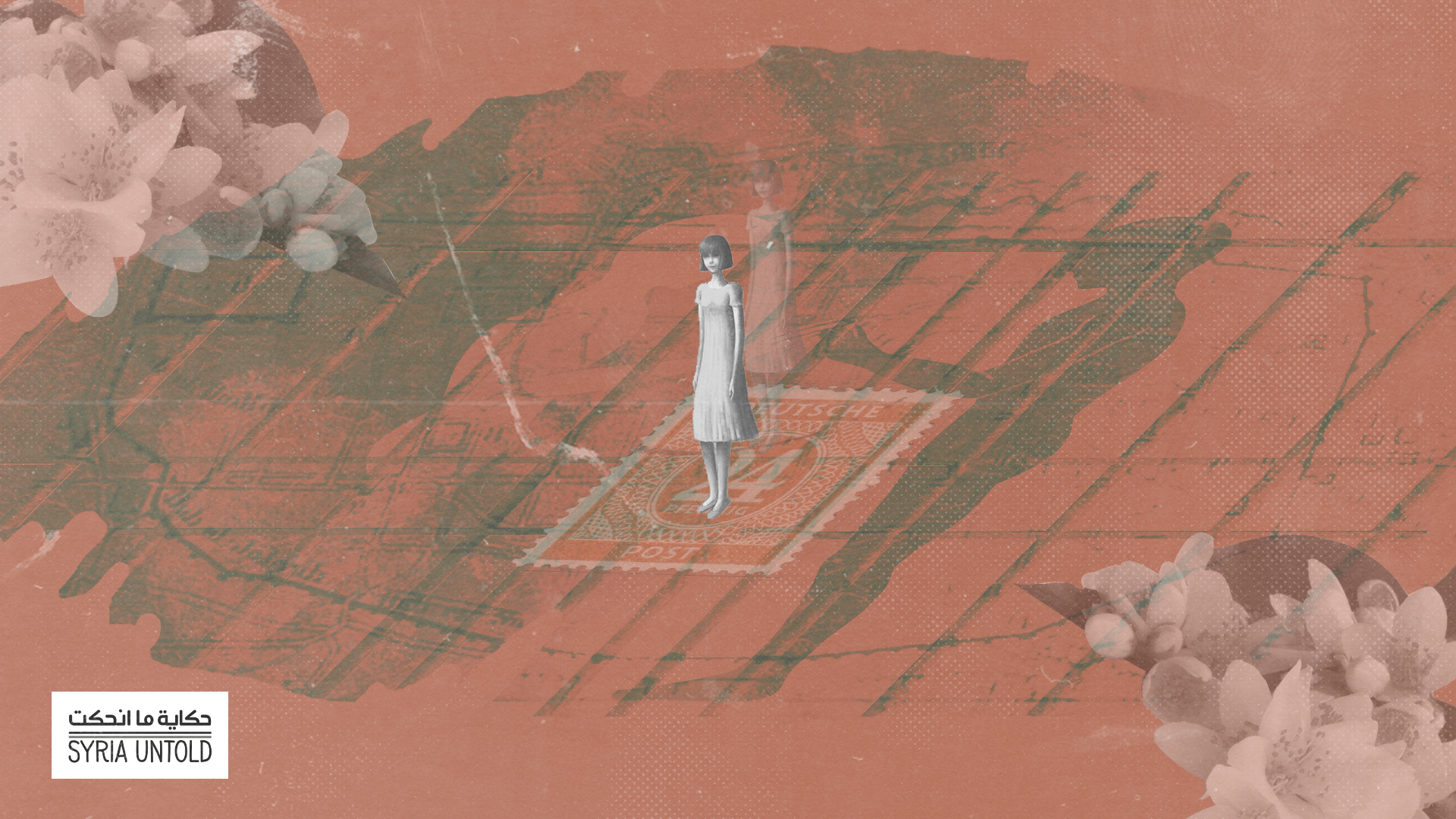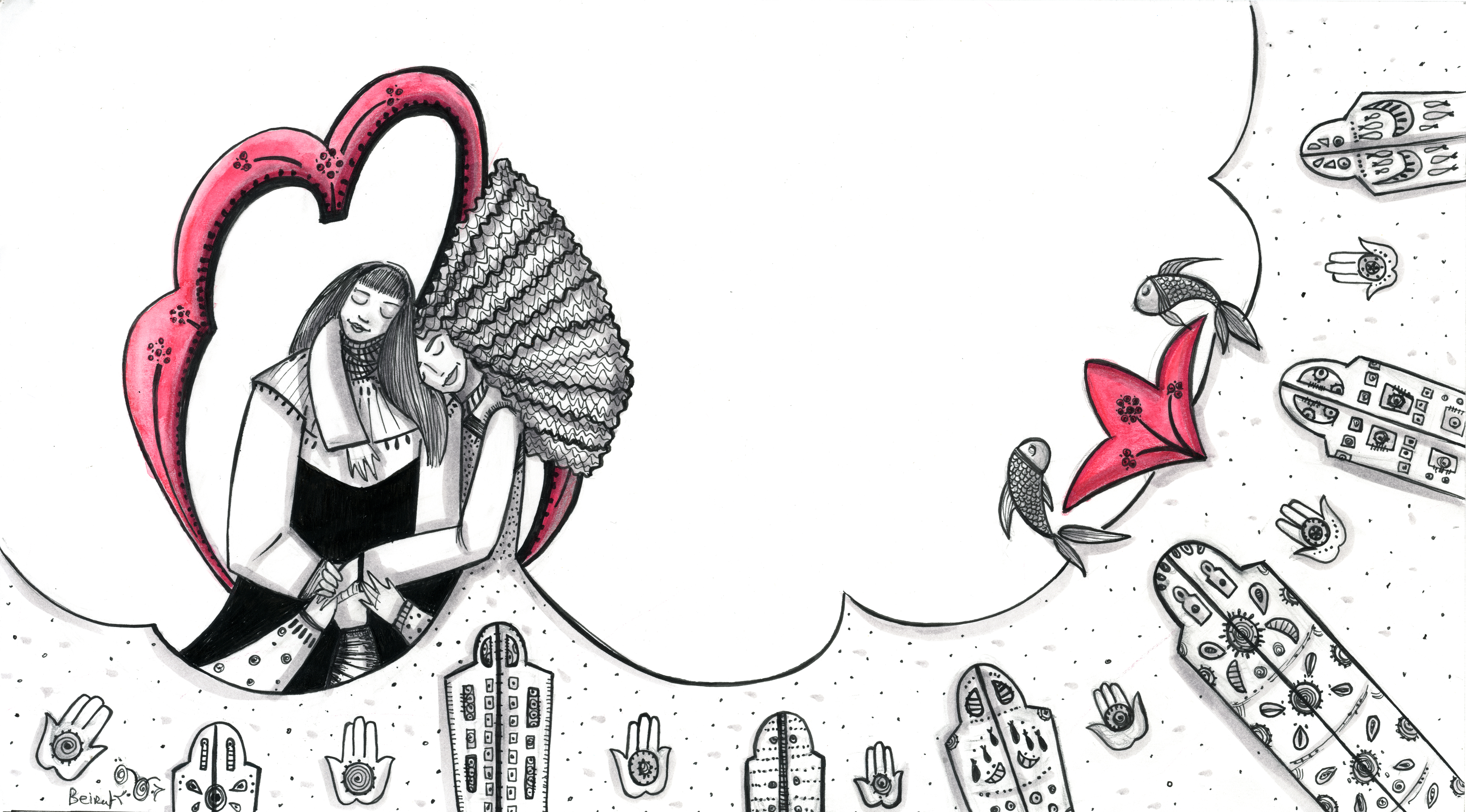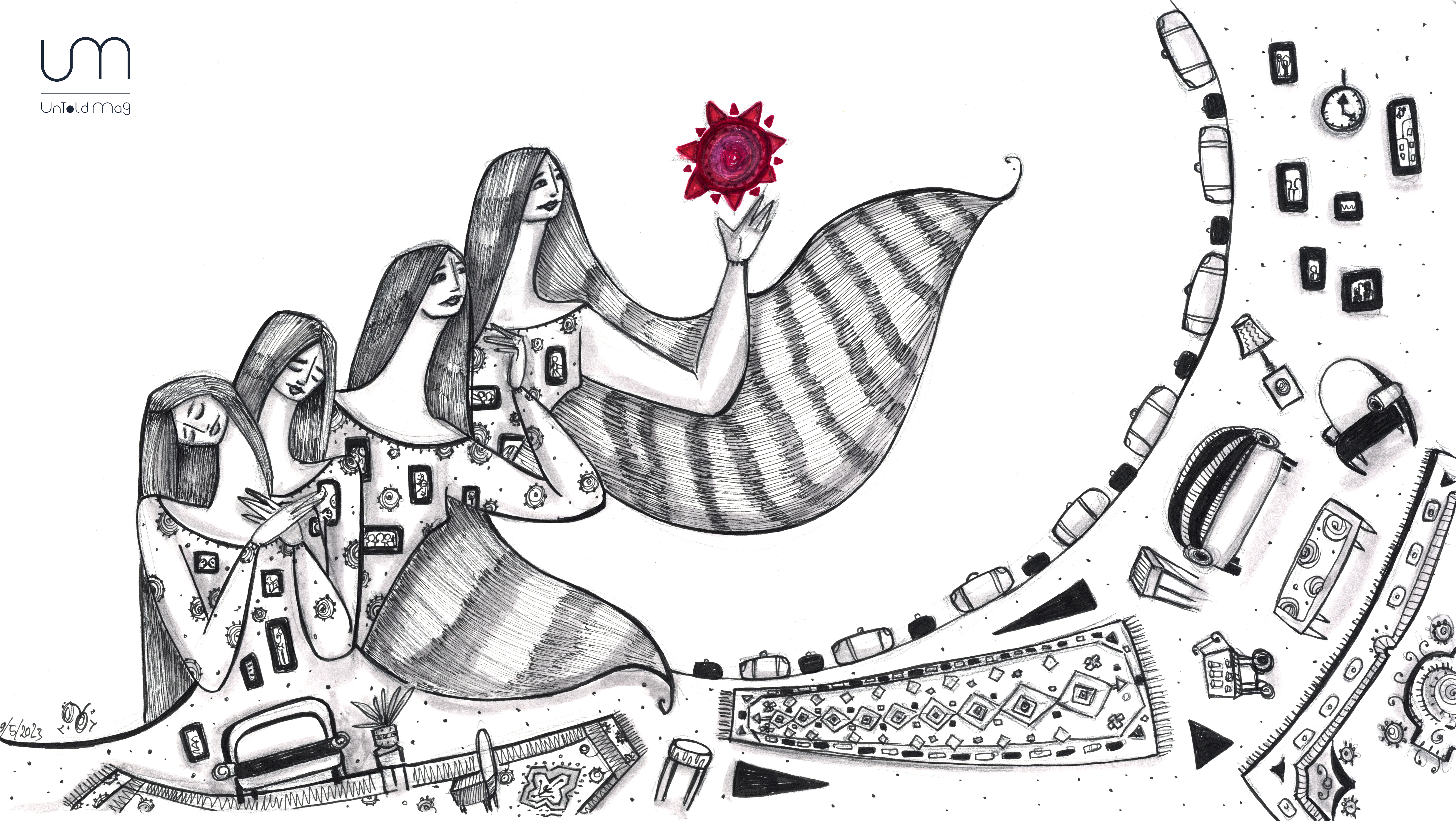"Why don’t you work? Does your husband forbid you? Isn’t he a media graduate like you? What’s the real reason?"
These relentless questions follow me whenever someone discovers—often by chance—that I haven’t secured an administrative position or that I work independently, just months after my marriage. It makes me question this new form of discrimination that I face as a woman.
It wasn’t easy to decide to write this article, especially in a society where double standards dominate, and even the most fundamental rights of women are still subject to debate—including the right to express themselves freely.
Yet, as a woman and journalist committed to advocating for women’s rights, I didn’t hesitate to write for Syria Untold. I hoped that sharing my experience would help challenge the ignorance and discrimination we face, especially in a society that pressures women to delay—or even forgo—pregnancy, as if that were the only way to achieve success in our professional lives.
In late August of this year, the manager of an online newspaper in Qamishli, a city in northeastern Syria, reached out to offer me a position as an editor. After passing the test and preparing for the interview, my worst fears were realized.
I was in the middle of completing a task for an Arabic website when I noticed the time on my computer clock—3:30 in the afternoon. At that moment, a WhatsApp message arrived from a German phone number. The sender introduced himself as the manager of a website called “Qamishli Office.” He explained that a fellow journalist had recommended me for the position and asked if I could share my CV.
The most fundamental rights of women are still subject to debate—including the right to express themselves freely.
I didn’t keep him waiting. I promptly sent my CV, which included examples of my work published on several prominent Arabic and local platforms. Just minutes after receiving it, he tasked me with preparing a news report on a story trending in Arab and international media at the time.
At first, I assumed he was in a rush to get the news written or perhaps too pressed for time to prepare it himself. The task seemed straightforward and simple, requiring little effort or creativity, so I didn’t overthink the reason behind it. Despite his repeated requests to draft similar news stories that could make headlines the following day.
About a leftist father: Oh Comrade, “Who Will Wash the Dishes?”
09 July 2024
Later, I learned from him that the news I had prepared was merely a test and was never intended for publication. I have no issue with being subjected to tests or procedures by a media outlet prior to employment—it’s a standard and necessary part of the hiring process. However, a minimum level of respect is also required, such as informing the applicant about the test, especially if there is no competition or professional testing center in place, which is expected of media outlets that respect themselves and their journalists.
Naturally, I didn’t want to dwell too much on the situation. Just three days later, the manager contacted me again, this time in a rush, requesting an immediate interview so I could be hired quickly. He emphasized the urgency, mentioning that the following day marked the start of a new month. He informed me that I had passed the test with distinction and that only a few minor details remained—such as finalizing working hours and salary, as he put it.
I asked for a bit of time to prepare, explaining that he should have informed me the previous evening or at least given me a few hours’ notice so I could rearrange my appointments and commitments. However, he refused and presented me with a stark choice: either show up at his office within 30 minutes or forget the entire matter.
I hoped that sharing my experience would help challenge the ignorance and discrimination we face, especially in a society that pressures women to delay—or even forgo—pregnancy, as if that were the only way to achieve success in our professional lives.
Despite my usual intolerance for such treatment, I decided to attend the interview. I didn’t want to risk blaming myself later for passing on an opportunity or dismissing it prematurely—especially knowing that, as pregnant women, we often face a barrage of dismissive and ridiculous remarks in this regard.
However, what unfolded was even more disheartening. After I arrived, the manager apologized for not being able to hire me, citing my pregnancy as the reason. This came after a series of formal questions and answers that felt utterly hollow, as it was clear his decision was made the moment he noticed my pregnancy.
In a similar situation—which I won’t delve into in detail—an administrator at another media outlet outright told me that my job application would be reconsidered only if I reapplied after giving birth.
Widows Struggle to Overcome Poverty and Discrimination
07 November 2016
Through my conversations with many women in similar circumstances, I realized that this form of discrimination is deeply rooted in our society. While the details of their stories varied, the underlying issue remained the same: The forms of discrimination against pregnant women and newly married women have become diverse and widespread at various levels, whether it involves securing a job, earning a promotion, or receiving fair wages. Some women shared that employers often view them as burdens, labeling them as incompetent—a tactic used to pressure them into leaving their positions voluntarily.
Women in our societies are fighting wars on multiple fronts after marriage, whether they are pregnant or even planning to become pregnant. This negatively affects a work environment that is already filled with discrimination, belittling women, and undermining their rights.
The question that has haunted me over the past nine months is: How can we, as women, fight such harsh battles of marginalization? How can we achieve a balance between our professional careers and motherhood after everything we’ve suffered over the past fourteen years, from war and crises?
As I finish writing these lines, most of my thoughts are with passionate women, and I hope they will one day find an environment that allows them to have children freely and safely, free from discrimination and cruelty.










